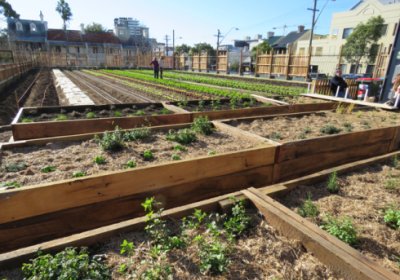The British General Election, held on December 12, resulted in a huge victory for the right and a sweeping defeat for the left. Boris Johnson, a close ally of United States President Donald Trump, topped the poll with 43% of the vote for the Conservative Party.
Derek Wall
Britain goes to the polls on December 12, in what could be the most important general election in a generation. Boris Johnson’s increasingly right-wing and chaotic Conservative Party is generally seen as the likely victor, but Labour’s left-wing leader Jeremy Corbyn could once again surprise, writes Derek Wall.
The news that a solid gold toilet has been stolen from Winston Churchill's former home of Blenheim Palace seems symptomatic of the present British condition. The British ruling class are not merely having their bathroom fittings taken but they seem assailed by chaos on every side, writes Derek Wall.
Reconstructing Karl Polanyi: Excavation & Critique
By Gareth Dale
Pluto, 2016
246 pp., $33.88
As a well-known British socialist activist and an academic political economist, Gareth Dale is thus ideally placed to write about Karl Polanyi, writes Derek Wall.
Polanyi was a leading 20th century critic of the free market economics that crystallised into the neoliberal system that is now threatening our planet.
Ian Parker has a track record as an ecosocialist political activist in Britain. He is a committed but non-dogmatic Marxist and a psychoanalyst so, unsurprisingly, anything he writes is likely to be serious and challenging.
Despite a strong theoretical and academic background, however, Parker writes in a very engaging and interesting fashion.
Omnia Sunt Communia: On the Commons & the Transformation to Postcapitalism
By Massimo De Angelis
Zed, 2017
456 pp, $20.76
Massimo De Angelis, an Italian academic based at the University of East London, has produced a thought-provoking guide to “commons” as a means of transforming and ultimately displacing capitalism. Commons, referring to collective forms of ownership, are increasingly seen as a way of moving beyond both oppressive states and exploitative markets.
“The general idea of this little book is to understand and explain why Marx will still be read in the twenty-first century, not only as a monument of the past, but as a contemporary author — contemporary both because of the questions he poses for philosophy and because of the concepts he offers it,” French philosopher Etienne Balibar writes in The Philosophy of Marx.
With some reservations, I feel he achieves this goal. It is a thought-provoking book, but it may disappoint readers who seek either an introduction to Marx’s philosophy or a straightforward account of how Marx’s ideas can inspire focused political action in the 21st century.
Revolution in Rojava: Democratic Autonomy & Women’s Liberation in Syrian Kurdistan
By Michael Knapp, Anja Flack & Ercan Ayboga (translated by Janet Biehl)
Pluto, 2016
285 pp., $38.95
Rojava, which is Kurdish for the “west”, is to be found in Northern Syria. In the middle of a conflict zone, marked by the war against the Assad regime, a Turkish invasion and ongoing conflict with the brutal jihadists of ISIS and al-Nusra, the Kurds and their allies are creating a new kind of democratic system.
 Jeremy Corbyn's success is one sign, and perhaps the most dramatic, of a wider movement challenging the British establishment.
Jeremy Corbyn's election as Labour Party leader has already had a dramatic effect on British politics.
All of us on the left in Britain need to ask how we can support him — and consider what the long term implications of his success may be. Those outside Britain, especially on the green left, need to ask whether there are lessons that can be learned.
Jeremy Corbyn's success is one sign, and perhaps the most dramatic, of a wider movement challenging the British establishment.
Jeremy Corbyn's election as Labour Party leader has already had a dramatic effect on British politics.
All of us on the left in Britain need to ask how we can support him — and consider what the long term implications of his success may be. Those outside Britain, especially on the green left, need to ask whether there are lessons that can be learned.
 Britain's May 7 general elections, in which the Conservative Party won an outright majority, produced a couple of silver linings on a very large black cloud.
One was the success of the Green Party of England and Wales. While the party did not sweep into Westminster, it made progress politically and in terms of votes.
Britain's May 7 general elections, in which the Conservative Party won an outright majority, produced a couple of silver linings on a very large black cloud.
One was the success of the Green Party of England and Wales. While the party did not sweep into Westminster, it made progress politically and in terms of votes.
- Previous page
- Page 2
- Next page









